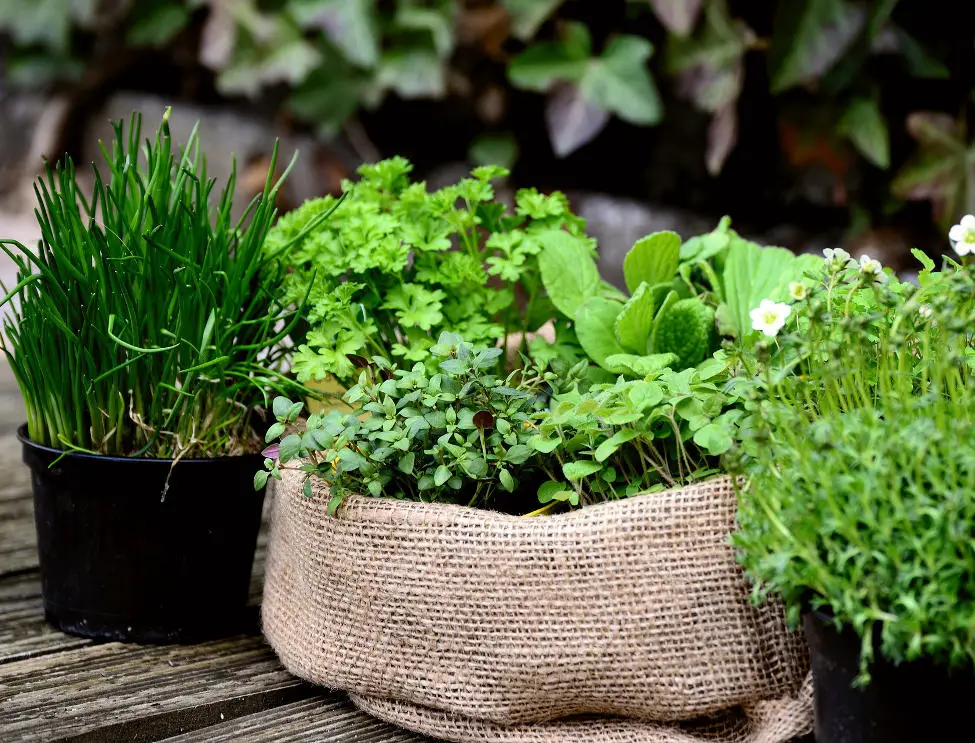Unlocking the Secrets of Herb Companionship
Embarking on the journey of cultivating herbs is not just about individual plants; it’s about creating a harmonious garden ecosystem. Companion planting for herbs is a time-honoured practice that involves strategically placing herbs together to enhance growth, repel pests, and improve overall garden health. In this guide, we’ll explore the best herbs to plant together, providing you with insights into creating a thriving and fragrant herb garden.
Understanding the Essence of Companion Planting for Herbs
The Art of Herb Companionship:
- Companion planting fosters symbiotic relationships between herbs.
- Improved pest control, nutrient-sharing, and space optimization are key benefits.
Companion planting is a gardening technique where herbs are strategically placed to benefit each other. By understanding the principles of herb companionship, you can create a garden where plants work together to maximize their potential. The key benefits include improved pest control, nutrient-sharing, and efficient space utilization.
Basil and Tomatoes: A Classic Pairing
Basil-Tomato Synergy:
- Basil deters tomato hornworms and enhances tomato flavour.
- Tomatoes provide shade and support for basil.
Basil and tomatoes are classic companions, both in the kitchen and the garden. Basil helps deter tomato hornworms, while the aromatic compounds released by basil enhance the flavour of tomatoes. Planting them together not only improves each other’s health but also creates a visually appealing and fragrant garden corner.
Chives and Roses: An Aromatic Partnership
Chives-Rose Harmony:
- Chives repel aphids and provide natural pest control for roses.
- Roses, in return, benefit from the nutrients released by chives.
Chives, with their pungent aroma, make excellent companions for roses. They deter aphids, acting as a natural pest control method for your delicate rose blooms. Meanwhile, roses benefit from the nutrients released by chives as they break down, creating a symbiotic relationship that promotes the health and beauty of both plants.
Sage and Brassicas: Shielding Against Pests
Sage-Brassica Defense Team:
- Sage repels cabbage moths and protects brassicas.
- Brassicas, such as cabbage and broccoli, benefit from the pest-resistant qualities of sage.
Sage is a natural defender against cabbage moths, making it an ideal companion for brassicas like cabbage and broccoli. Planting sage alongside brassicas not only helps protect them from common pests but also adds a savoury note to your culinary ventures.
Dill and Cucumbers: A Pickling Partnership
Dill-Cucumber Collaboration:
- Dill attracts beneficial insects for cucumber pollination.
- Cucumbers benefit from the natural pest-repelling qualities of dill.
Dill and cucumbers share a symbiotic relationship, especially if you have pickling in mind. Dill attracts beneficial insects that aid in cucumber pollination. In return, cucumbers benefit from the pest-repelling qualities of dill, creating a mutually beneficial partnership in your garden.
Rosemary and Beans: Enhancing Growth
Rosemary-Bean Synergy:
- Rosemary enhances bean flavour and deters bean beetles.
- Beans provide nitrogen to the soil, benefiting rosemary’s growth.
Rosemary and beans complement each other in a way that enhances both flavour and growth. Rosemary improves the flavour of beans while also deterring bean beetles. Beans, being nitrogen-fixing plants, enrich the soil with this essential nutrient, promoting the healthy growth of rosemary.
Mint and Lettuce: Cooling Companions
Mint-Lettuce Cooling Duo:
- Mint deters pests that commonly affect lettuce.
- Lettuce benefits from the cooling shade provided by the mint.
Mint’s refreshing aroma makes it an excellent companion for lettuce. Mint helps deter pests that commonly affect lettuce, and the sprawling nature of mint provides cooling shade, preventing lettuce from bolting prematurely. This cooling duo ensures your lettuce stays crisp and flavorful.
Thyme and Eggplants: A Flavorful Pairing
Thyme-Eggplant Harmony:
- Thyme enhances the flavour of eggplants.
- Eggplants, in return, benefit from thyme’s pest-repelling properties.
Thyme and eggplants form a flavorful partnership. Thyme enhances the taste of eggplants, making them a delightful culinary combination. Additionally, thyme’s pest-repelling properties contribute to the overall health and vitality of eggplants in your garden.
Crafting a Fragrant and Flourishing Herb Garden
Companion planting for herbs is not just a gardening technique; it’s a celebration of the interconnectedness of nature. By choosing the right companions for your herbs, you can create a garden that thrives on mutual support, pest resistance, and enhanced flavour profiles. Experiment with these herb pairings, and let the aromatic symphony of your herb garden delight your senses.
